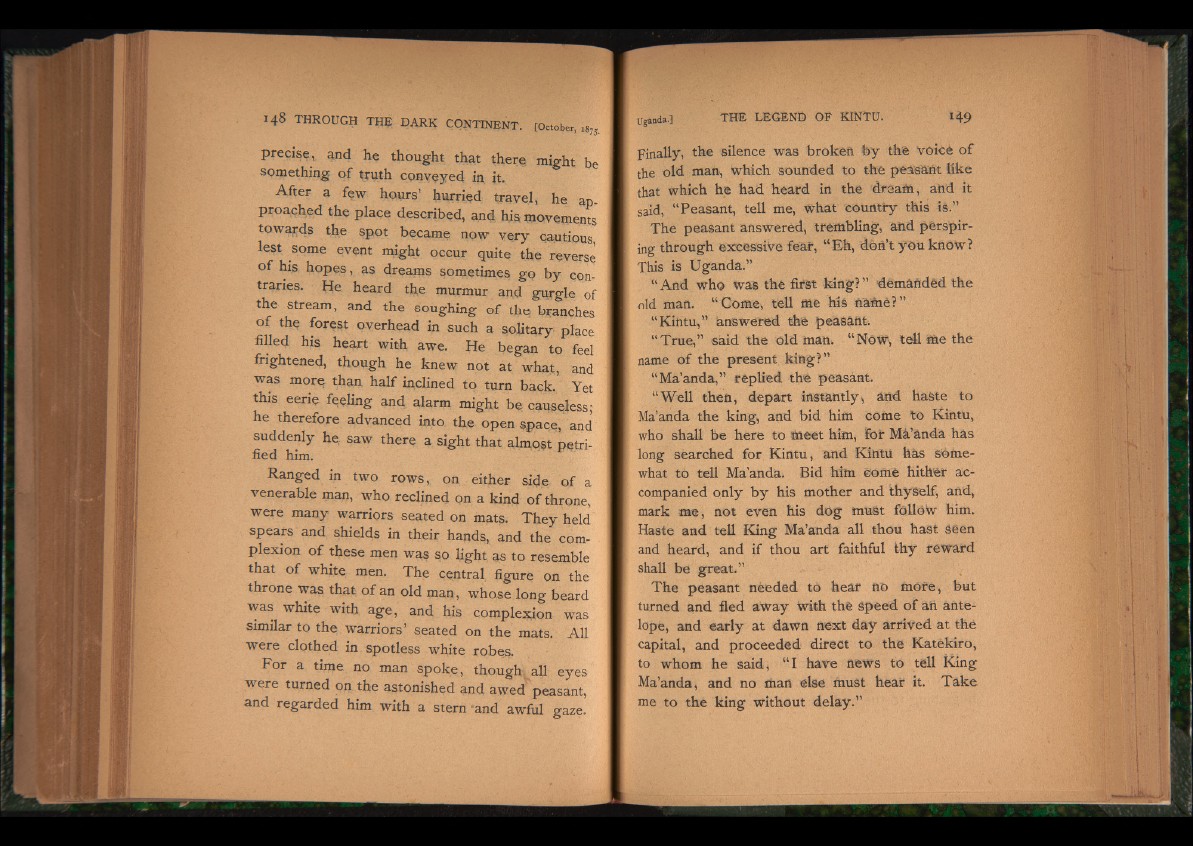
precis^,. And he thought that there might be
something of truth conveyed in it.
After a few hours’ hurried travel, he approached
the place described, and his movements
towards the spot became now very cautious,
lest some event might occur quite the reverse
of his hopes, as dreams sometimes gq by contraries.
fie heard the murmur and gurgle of
the stream, and the soughing of the branches
of the forest overhead in such a solitary place
filled his heart with awe. He began to feel
frightened, though he knew not at what, and
was morq than half inclined to turn back. Yet
this eerie feeling and. alarm might be causeless;
he therefore advanced into the open space, and
suddenly he, saw there a sight that almost petrified
him.
Ranged in two rows, on either side of a
venerable man, who reclined on a kind of throne,
were many warriors seated on mats. They held
spears and shields in their hands, and the complexion
of these men was so light as to resemble
that of white men. The central figure on the
throne was that of an old man, whose long beard
was white with age, and his complexion was
similar to the warriors’ seated on the mats. All
were clothed in spotless white robes.
For a time no man spoke, though all eyes
were turned on the astonished and awe/peasant,
and regarded him with a stern -and awful gaze.
Finally, the silence was broken by the vóièè of
the old man, Which sounded to the peasant like
that which he had heard in the draaM, and it
said, “Peasant, tell me, what countiy this is.”
The peasant answered, trembling, and perspiring
through excessive fear, “Eh, don’t you know?
This is Uganda.”
“And who was the first king?” demanded the
old man. “ Come, tell me his name?”
“Kintu,” answered the peasant.
“ True,” said the old man. “ NOW, tell me the
name of the present king?”
“Ma’anda,” replied the peasant.
“Well then, depart instantly* and haste to
{ Ma’anda the king, and bid him cóme to Kintu,
who shall be here to Éieet him, for Mà’ànda has
long searched for Kintu* and Kintu has somewhat
to tell Ma’anda» Bid him èomè hither accompanied
only by his mother and thyself, and,
mark me, not even his dOg must folloW him.
I Haste and tell King Ma’anda all thou hast Seen
and heard, and if thou art faithful thy reward
shall be great.”
The peasant needed to hear no more, but
turned and fled away With the Speed of àft àftte-
lope, and early at dawn next day arrived at the
capital, and proceeded direct to the Katékiro,
to whom he said* “ I have news to tell King
Ma’anda, and no man else must hear it. Take
me to the king without delay.”